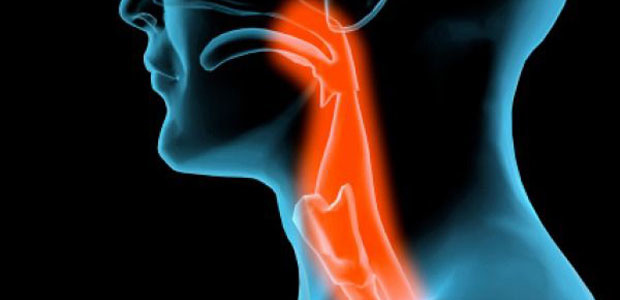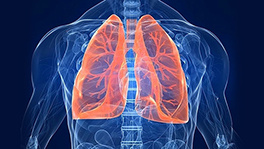
What is laryngeal cancer?
Laryngeal cancer is a malignant cancer that starts in the epithelial tissue of the laryngeal mucosa. The most common laryngeal cancer is laryngeal squamous cell carcinoma.
What is the incidence of laryngeal cancer?
The incidence of laryngeal cancer accounts for 1-5% of all cancers of the whole body, it is the third common cancer in ear nose throat department, preceded only by nasopharyngeal cancer and nasal carcinoma or sinus cancer. It often happens to people from 50 to 70 years old, males especially.
If you are diagnosed with cancer, we're here to offer you help.
What are the risk factors of laryngeal cancer?
Smoking: burning tobacco can produce carcinogens, while its smoke can stop or slow down the ciliary movement and causes mucous hyperemia and edema, resulting in epithelial proliferation and thickening, as well as squamous metaplasia. Thus, carcinogenic basis is established.
Excessive drinking: long-term stimulation to the mucosa can cause degeneration and leads to cancer.
Stimulation from chronic inflammation: such as chronic laryngitis or respiratory inflammation
Air pollution: long-term intake of harmful gas, such as sulfur dioxide and industrial dust, can easily cause laryngeal cancer.
Viral infection: virus can cause cells degeneration and abnormal division or adhere to the gene to be passed to the next generation causing cancers. Infection of HPV16 and HPV18 also has close relation to the incidence of laryngeal cancer.
Precancerous lesion: any recurrence of laryngeal keratosis and benign laryngeal tumors, like laryngeal papilloma, can transform to cancer.
Radioactive rays: treatments using radioactive rays to treat tumors in the neck can cause cancers.
Sex hormone: relevant experiments have proved that the percentage of masculine cells in the estrogen receptor of laryngeal patients is apparently increased.
How dose laryngeal cancer transfer and diffuse?
Directly transfer: advanced laryngeal cancer often infiltrate and transfer to the submucosa.
Lymphatic transfusion: laryngeal cancer usually transfers to the superior deep cervical lymphatic nodes in the crotch of common carotid artery, and then goes along the internal jugular vein to invade both the superior and inferior lymph nodes.
Transfer through blood vessels: laryngeal cancer can transfer to other body parts, such as lung, liver, kidney, bone and brain through blood circulation.
If you are diagnosed with cancer, we're here to offer you help.
How to diagnose laryngeal cancer?
Neck examination
Laryngoscopy
Imaging examination
X-ray examination
CT/MRI examination
Ultrasound tomoscan
Chinese medicine characteristic treatment for laryngeal cancer
Through years of Chinese medicine exploration and research, Chinese medicine to treat cancer has obtained an effect of nursing, balancing and reinforcing the physical constitution of the patient while treating cancers. Combining together the advantages of Chinese medicine and Western medicine can gain a better effect than either single treatment. Combination of traditional Chinese medicine and Western medicine makes it possible to treat laryngeal cancer through a variety of ways, including Chinese medicine intra-arterial infusion, Chinese medicine aerosol inhalation and Chinese medicine acupoint injection therapy, etc. Combination of traditional Chinese medicine with physical therapy and rehabilitative treatments can obtain better treatment effects. It is a leading comprehensive treatment mode for cancers.
If you are diagnosed with cancer, we're here to offer you help.
What other treatment methods are available for laryngeal cancer?
Surgery: surgery is the preferred treatment method for laryngeal cancer. It mainly includes total laryngectomy, horizontally partial laryngectomy, vertically partial laryngectomy, and so on. Different kinds of surgeries are to be performed under specialist’s instruction and according to the patient’s specific conditions.
Radiation therapy: this method is recommended for stage 1 laryngeal cancer patients, or patients who are in poor physical condition or before receiving surgery. After the radiation treatment, patients can still have their laryngeal functions, pronouncing for example.
Chemotherapy: for those advanced laryngeal cancer patients, who have missed the chance of surgery, chemotherapy or combination of radiation therapy and chemotherapy is often recommended.
Minimally invasive treatment: minimally invasive techniques, such as thermotherapy, cryosurgery therapy, interventional therapy, photodynamic therapy, etc. can not only improve the survival rate of the patient, but also save their laryngeal functions. So far, the rates of 5-year survival for laryngeal cancer patients and laryngeal function retention can separately reach about 70%.
Experts from Modern Cancer Hospital Guangzhou pointed out that, treatment for laryngeal cancer must combine multi-disciplinary and comprehensive treatments together, which including surgery, chemotherapy, radiation therapy, Chinese medicine and minimally invasive treatment, etc. according to different stages, types, biological behaviors of the cancers and the general condition of the patient, rather than subjectively focusing on one-sided treatment or single treatment. Only by doing so, can the treatment obtain the best effect.
If you are diagnosed with cancer, we're here to offer you help.
What are the principles of postoperative care of laryngeal cancer?
After the patient restores their consciousness, help them lie in semi-reclining position to benefit breathing and draining.
Put some ice on the neck to promote the reparation of the wound.
Try to keep unobstructed draining and avoid skin flag necrosis. Observe and note down the characteristics and amount of the draining fluid regularly. Inform the doctor once abnormities occur.


 (MY)+60 10-898 8919
(MY)+60 10-898 8919


























 Leave
Leave